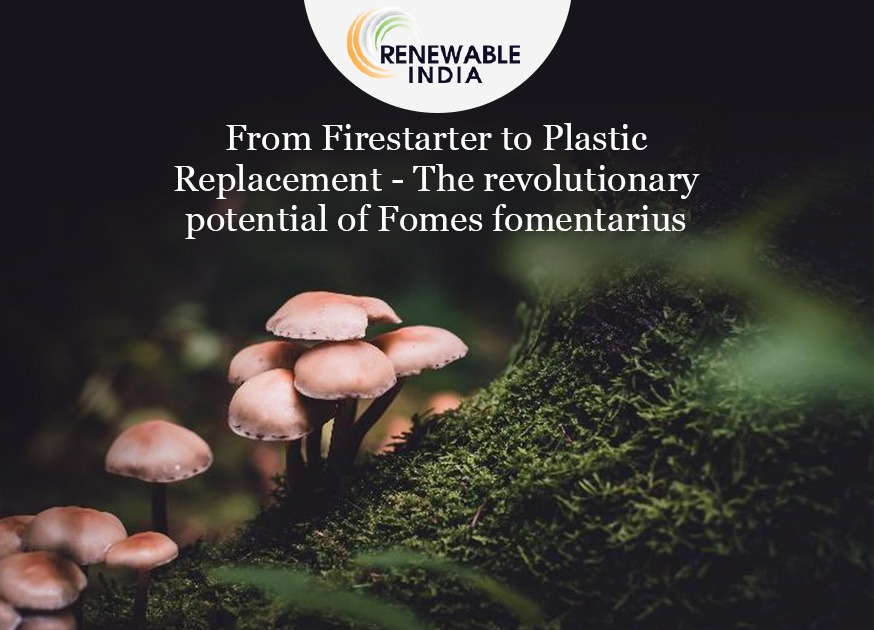
A world inspired by a sustainable lifestyle is looking for alternatives to everything traditional. Be it using electric vehicles in place of automobiles running on petrol and diesel or switching to solar energy for generating electricity, the time and situation demand switching to green alternatives for less pollution and a better lifestyle.
The good news is now that we have found a way to reduce plastic usage as well. Generally people thing of reusable bags made of cotton, jute, and hemp. However, we found a new way to further stop plastic usage altogether and this can be possible with the discovery of hyper-intelligent species of mushrooms known as Fomes fomentarius
What is F. fomentarius and from where it originated?
Fomes Fomentarius aka Hoof fungus grows on rotten tree barks and is usually used for starting fires. Things took a different turn when top scientists from the VTT research centre in Finland recognized the real potential of the fungus. The scientists claimed that the mushroom has full potential to replace plastic in the long run.
According to the study published in Science Advances, F. Fonterius has a very hard protective layer, a spongy mid-layer, and a very strong inner layer. The different textures of the outer, mid, and inner layers make the substance versatile for various purposes, be it sound insulation or shock absorber.
What makes Fomentarius a better alternative to plastic?
1. In contrast to plastic, which is a non-renewable resource, Fomes fomentarius is a sustainable and renewable substance. It can be cultivated in a matter of weeks and does not necessitate the exploitation of fossil fuels, making it an environmentally friendly choice.
2. Growing the material with simple chemicals and industrial biotechnology provides an alternate answer to the cost, time, mass production, and sustainability challenges connected with traditional plastic manufacture. Unlike wild-type mushrooms, which take years to grow, the mushroom may be manufactured in enormous quantities in a matter of weeks.
3. Unlike plastic, which cannot be broken down by bacteria, Fomes fomentarius is biodegradable and compostable.
4. When compared to the manufacture of plastic, the production of Fomes fomentarius has a lower carbon impact. The materials necessary to make Fomes fomentarius are easily available, and the process itself produces no substantial greenhouse gas emissions.
Some additional usages Fomes fomentarius
F. fomentarius, has numerous possible applications. Its distinct qualities make it an ideal material for use in a wide range of industries, including bioremediation, medicine, and agriculture. Its capacity to degrade hazardous chemicals, for example, makes it beneficial for environmental remediation. Its antibacterial and anti-inflammatory characteristics make it a promising treatment for infections and inflammation in medicine.
The fungus can also be used in agriculture as a natural insecticide. Furthermore, because of its fibrous nature, it is useful for the creation of textiles and building materials. The adaptability of F. fomentarius provides limitless opportunities for novel uses, making it a promising subject for further research and development.
The invention of a mushroom-based material with structural strength similar to plastic is a significant discovery that has the potential to revolutionise the plastic industry. This breakthrough provides a promising answer to the plastic trash dilemma by lowering our reliance on non-renewable resources and fostering a more sustainable future. With growing concerns about plastic pollution and its negative effects on the environment, this invention could not have come at a better time.
By embracing this cutting-edge technology, we can establish a circular economy in which waste is reduced and resources are used more efficiently. This discovery demonstrates the power of science and ingenuity in addressing some of the world’s most serious issues.
Leave a Reply